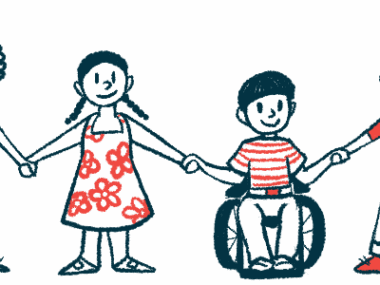Key trial of Sjögren’s treatment expected to launch this summer
Immunovant's IMVT-1402 aims to ease disease activity in patients
Written by |

Immunovant is planning to launch a potentially registrational clinical trial this summer to test its treatment candidate IMVT-1402 in people with Sjögren’s disease.
The company said that its investigational new drug application — a formal request to the U.S. Food and Drug Administration (FDA) seeking permission to start clinical testing — has already been cleared. Top-line data from the upcoming registrational trial is expected by 2028, according to the company.
In a corporate update presentation, Immunovant provided details about the study’s expected design. The trial plans to enroll 180 adults with primary Sjögren’s with moderate to severe systemic disease activity who are positive for anti-SSA/Ro antibodies — self-reactive antibodies often seen in people with the disease. Moderate to severe systemic disease activity will be indicated by a total score of five or more on the Clinical European League Against Rheumatism Sjögren’s Syndrome Disease Activity Index, or clinESSDAI.
Participants will be randomly assigned to receive either 300 or 600 mg of IMVT-1402 or a placebo once weekly via a subcutaneous, or under-the-skin, injection. The study will span 24 weeks, or about six months. After that, those who are deemed to be responders — participants with an improvement of four points or more on clinESSDAI scores from the study’s start — may continue receiving the same treatment in the study’s second half. That part will also last 24 weeks.
The trial’s primary goal is to assess changes in disease activity, as measured by clinESSDAI scores, from the study’s start to week 24, or the end of the first portion of the study. Changes in clinESSDAI scores from the beginning of the trial to week 48, or the end of the second portion of the study, will also be assessed as a key secondary goal.
Sjögren’s treatment IMVT-1402 to be tested in 180 adults in trial
Sjögren’s is an autoimmune disease in which the immune system launches an attack that damages healthy tissue in the body. Although the causes of the condition are not completely understood, self-targeting antibodies called autoantibodies are thought to play a central role.
Antibodies are proteins that the immune system makes to target threats. Normally, antibodies target infectious agents like viruses and bacteria, but in conditions like Sjögren’s, autoantibodies target the body’s own healthy cells, driving an immune attack.
IMVT-1402 is designed to reduce levels of disease-driving autoantibodies. The therapy specifically works to block the activity of a protein called the neonatal Fc receptor, or FcRn. This protein normally helps to stabilize antibodies in the blood, helping to prevent them from being degraded. By blocking FcRn, IMVT-1402 aims to speed up the degredation of antibodies, which is expected to reduce levels of the autoantibodies that drive Sjögren’s.
I am incredibly excited to lead Immunovant into the next leg of its journey with a renewed focus on clinical execution across IMVT-1402 indications, all of which are potentially best-in-class or first-in-class.
Sjögren’s is the fifth condition for which Immunovant is exploring treatment with IMVT-1402. The company also is testing the therapy in several other antibody-mediated autoimmune diseases, including myasthenia gravis. In that disease, autoantibodies interfere with the communication between nerves and muscles, giving rise to symptoms like muscle weakness.
According to Immunovant, IMVT-1402 is expected to have a better safety profile than other treatments that work by targeting FcRn.
As part of the move toward testing IMVT-1402 in Sjögren’s, Immunovant announced in a press release that it is changing its leadership. Former CEO Pete Salzmann, MD, is retiring, and is being replaced by Eric Venker, MD, president of Immunovant’s parent company Roivant.
“I am incredibly excited to lead Immunovant into the next leg of its journey with a renewed focus on clinical execution across IMVT-1402 indications, all of which are potentially best-in-class or first-in-class and if successful, will have an enormous impact on both the trajectory of the company and the anti-FcRn treatments available for patients,” Venker said.






